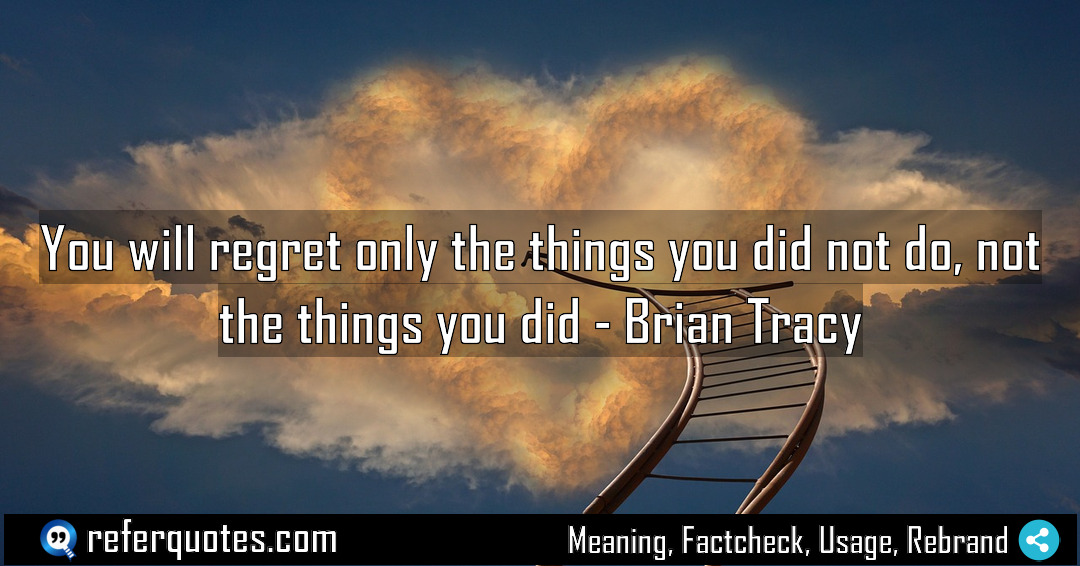You will regret only the things you did not do… it’s a powerful idea, isn’t it? It flips the script on how we usually think about risk and regret. Let’s break down why this concept is so crucial for making bold moves in business and in life.
Share Image Quote:Table of Contents
Meaning
At its core, this quote is about the profound, lingering sting of inaction. It’s the idea that the biggest regrets in life aren’t your failures, but your unchased opportunities.
Explanation
Let me tell you, I’ve seen this play out so many times. The mistakes you make? You learn from them. They become data points, war stories, lessons that shape you. But the thing you didn’t do—the client you didn’t call, the product you didn’t launch, the conversation you didn’t have—that’s the one that haunts you. It’s a phantom pain. It lives in the realm of “what if?” And “what if” is a brutal place to live. This isn’t about being reckless; it’s about understanding that the cost of inaction is almost always higher than the cost of a failed attempt. A failed attempt has an end. Inaction? It just… lingers.
Quote Summary
| Context | Attributes |
|---|---|
| Original Language | English (3668) |
| Category | Life (320) |
| Topics | action (112), courage (145), regret (4) |
| Literary Style | reflective (255) |
| Emotion / Mood | inspiring (392) |
| Overall Quote Score | 83 (302) |
Origin & Factcheck
This one comes straight from Brian Tracy’s 2002 book, The 100 Absolutely Unbreakable Laws of Business Success. You’ll sometimes see it floating around misattributed to motivational speakers or even Mark Twain, but its home is firmly in Tracy’s work on business and personal achievement.
Attribution Summary
| Context | Attributes |
|---|---|
| Author | Brian Tracy (375) |
| Source Type | Book (4032) |
| Source/Book Name | The 100 Absolutely Unbreakable Laws of Business Success (48) |
| Origin Timeperiod | Contemporary (1615) |
| Original Language | English (3668) |
| Authenticity | Verified (4032) |
Author Bio
Brian Tracy, a prolific author gained global reputation because of his best seller book list such as Eat That Frog!, Goals!, and The Psychology of Selling, and created influential audio programs like The Psychology of Achievement. He is sought after guru for personal development and business performance. Brian Tracy International, coaches millions of professionals and corporates on sales, goal setting, leadership, and productivity.
Official Website |Facebook | X | Instagram | YouTube |
Where is this quotation located?
| Quotation | You will regret only the things you did not do, not the things you did |
| Book Details | Publication Year/Date: 2000; ISBN: 978-1576750805; Last edition: Berrett-Koehler Publishers; Number of pages: 288. |
| Where is it? | Chapter: The Law of Action; Approximate page from 2000 edition |
